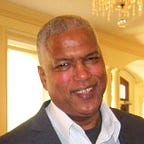Savannah Renames Square Honoring America's Chief Racist
Enslaved Woman is Honored Instead
Who was the most racist person in America, past or present? Even if we limit the competition to public figures who held a major office. I can think of dozens who contended for the title. Yet one man has done more to distinguish himself in this category than anyone I can think of. That man, John C. Calhoun, had his name removed from a square in Savannah that bore his name for 170 years. It was renamed for Susie King Taylor, who taught formerly enslaved people to read after the Civil War and was the only Black woman to write a memoir of her life during the war.
Bestowing the title "Chief Racist" wasn't as hard as one might think. America's borders are what they are because of Calhoun and those he persuaded. Much of what is now Mexico might be part of the United States, but for his insistence, we didn't want any more of Mexico because there were "too many Mexicans."
“Nor have we ever incorporated into the Union any but the Caucasian race. To incorporate Mexico would be the first…
